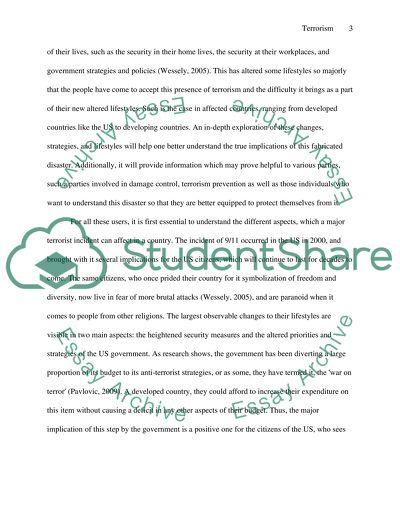Cite this document
(“Terrorism and Homeland Security Essay Example | Topics and Well Written Essays - 2500 words”, n.d.)
Retrieved de https://studentshare.org/health-sciences-medicine/1390350-terrorism-and-homeland-security
Retrieved de https://studentshare.org/health-sciences-medicine/1390350-terrorism-and-homeland-security
(Terrorism and Homeland Security Essay Example | Topics and Well Written Essays - 2500 Words)
https://studentshare.org/health-sciences-medicine/1390350-terrorism-and-homeland-security.
https://studentshare.org/health-sciences-medicine/1390350-terrorism-and-homeland-security.
“Terrorism and Homeland Security Essay Example | Topics and Well Written Essays - 2500 Words”, n.d. https://studentshare.org/health-sciences-medicine/1390350-terrorism-and-homeland-security.


